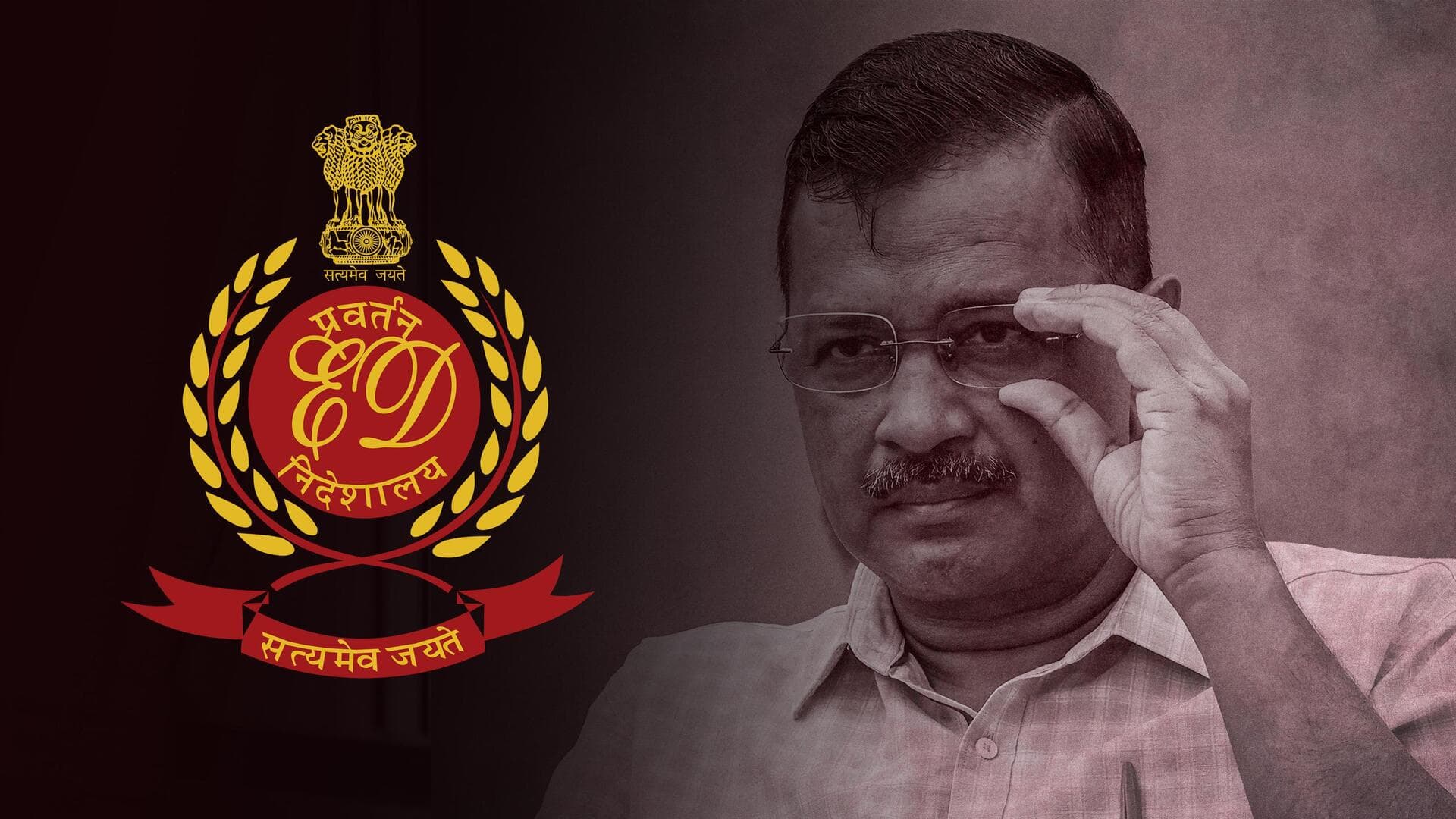Excise policy case: Kejriwal receives 8th ED summons
What's the story
Delhi Chief Minister Arvind Kejriwal on Tuesday received the eighth summons from the Enforcement Directorate (ED) in connection with the Delhi excise policy case.
The federal agency has asked the Aam Aadmi Party national convener to appear before it on Monday (March 4).
A day earlier, Kejriwal skipped the seventh ED summons.
The AAP had said since the matter is in court, the agency should wait for the verdict, which will be pronounced after the March 16 hearing.
Context
Why does this story matter?
Earlier this month, the ED approached a Delhi court after Kejriwal skipped multiple summonses in the investigation.
In the court, the CM had said that he will physically appear before it on the next date of hearing—March 16.
Notably, his refusal to appear before the ED raises the possibility of him becoming the first sitting Delhi CM to face arrest.
ED's argument
ED's investigation into excise policy
According to the ED, the agency has to record Kejriwal's statements on issues like the formulation of the now-scrapped 2021-22 excise policy and allegations of bribery, among others.
In a chargesheet filed in the case in December 2023, the ED claimed that the AAP used kickbacks worth Rs. 45 crore generated via the policy for its 2022 Goa Assembly poll campaign.
ED summons
Kejriwal has already skipped 7 summonses
On Monday (February 26), Kejriwal skipped the ED's seventh summons in the matter.
Alleging that the Bharatiya Janata Party (BJP)'s government at the Centre was using federal agencies to target the AAP, the party has so far denied all charges leveled by the ED.
To note, the Delhi CM has not been named as an accused in the case.
Background
What is the Delhi excise policy case
In November 2021, the Delhi government implemented the revamped liquor excise policy for 2021-22.
However, it decided to scrap it less than a year later amid extensive corruption allegations.
Central investigation agencies alleged that wholesaler profit margins were artificially boosted to 12% from 5%.
It also claimed that the regulation promoted cartelization and benefited those ineligible for liquor licenses for economic gain.
Meanwhile, the Kerjiwal-led Delhi administration denied the charges and said the strategy would have increased revenue.
